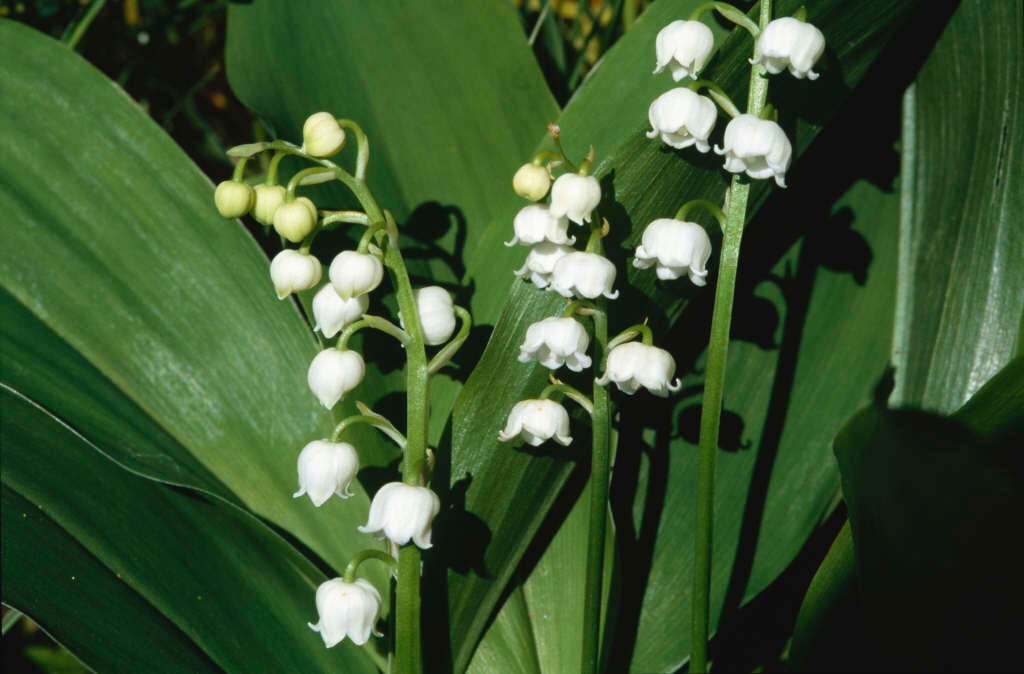Convallaria majalis
lily of the valley
A perennial to 25cm in height, forming extensive colonies. Erect racemes of nodding, bell-shaped, fragrant white flowers arise with the paired, elliptic leaves
Other common names
conval lilylady's tears
see moreliriconfancy
May bells
May lily
mayflower
mugget
Our Lady's tears
word lily
clych enid
Size
Ultimate height
0.1–0.5 metresTime to ultimate height
2–5 yearsUltimate spread
0.1–0.5 metresGrowing conditions
Moisture
Moist but well–drained, Poorly–drainedpH
Acid, Alkaline, NeutralColour & scent
| Stem | Flower | Foliage | Fruit | |
| Spring | White | Green | ||
|---|---|---|---|---|
| Summer | Green | Red | ||
| Autumn | Green | |||
| Winter |
Position
- Full shade
- Partial shade
Aspect
West–facing or East–facing or North–facing
Exposure
Sheltered Hardiness
H7Botanical details
- Family
- Asparagaceae
- Native to GB / Ireland
- Yes
- Foliage
- Deciduous
- Habit
- Matforming
- Potentially harmful
- TOXIC if eaten. Wear gloves and other protective equipment when handling TOXIC to pets - see the HTA guide to potentially harmful plants for further information and useful contact numbers
- Genus
Convallaria are rhizomatous perennials with elliptic to narrowly ovate leaves and arching racemes of small, highly fragrant, bell-shaped flowers followed by red berries
- Name status
Correct
- Plant range
- N Temperate regions
How to grow
Cultivation
Grow in a fertile, humus-rich moist soil in full or partial shade. Top dress with leaf mould in autumn.
Propagation
Propagate by seed sown in containers in a cold frame as soon as ripe (remove flesh from seed prior to sowing) or propagate by division in autumn
Suggested planting locations and garden types
- Cottage and informal garden
- Low Maintenance
- Ground cover
- Underplanting of roses and shrubs
Pruning
No pruning required
Pests
May be susceptible to swift moth caterpillar
Diseases
May be susceptible to grey moulds and leaf spots
Get involved
The Royal Horticultural Society is the UK’s leading gardening charity. We aim to enrich everyone’s life through plants, and make the UK a greener and more beautiful place.
